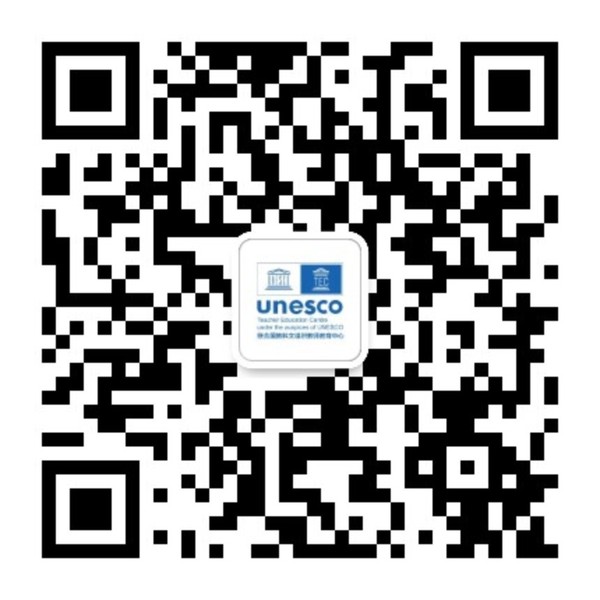From October 31 to November 3, Professor Hu Guoyong (Deputy Director of the UNESCO Teacher Education Centre, TEC), Associate Professor Lü Jiexin, Dr. Li Ruimiao, and doctoral student Olga, a four-member delegation from TEC, visited Uzbekistan. They attended the UNESCO Category Ⅱ Education Institutes Conference and paid visits to the Samarkand Education Skills Center and Samarkand No. 8 School.
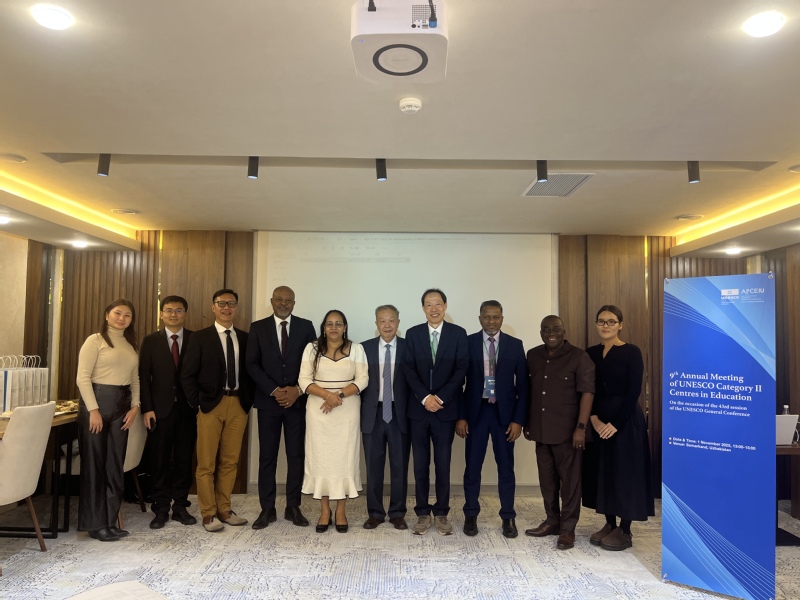
At the UNESCO Category Ⅱ Education Institutes Conference, the TEC delegation listened to reports from various Category Ⅱ education institutes. Professor Hu Guoyong and Associate Professor Lü Jiexin introduced TEC’s progress in knowledge production, capacity-building, information sharing, and technical assistance over the past year. They also highlighted Share Maths—the mathematics textbook currently promoted by TEC—and TEC’s STEM education cooperation in Brazil, Tanzania, and other countries. During the conference, the South Asia Teacher Education Centre (located in Sri Lanka) expressed its willingness to conduct cooperative research with TEC. After the conference, the TEC delegation also held an exchange with Rifa Wadood, UNESCO’s Permanent Delegate to Sri Lanka, who attended the conference. Both parties expressed their willingness to establish a cooperative relationship in the future to make greater contributions to the formulation of teacher professional standards in Sri Lanka and the professional development of teachers in the Asian region.
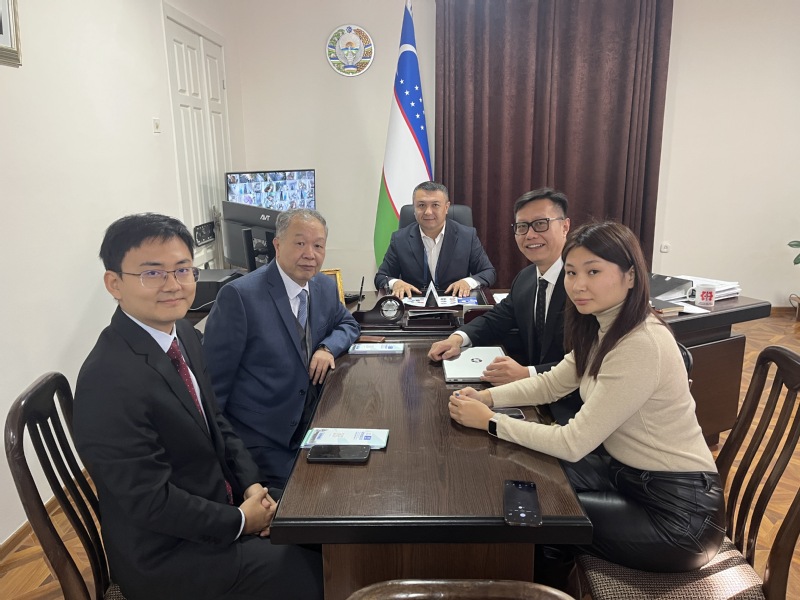
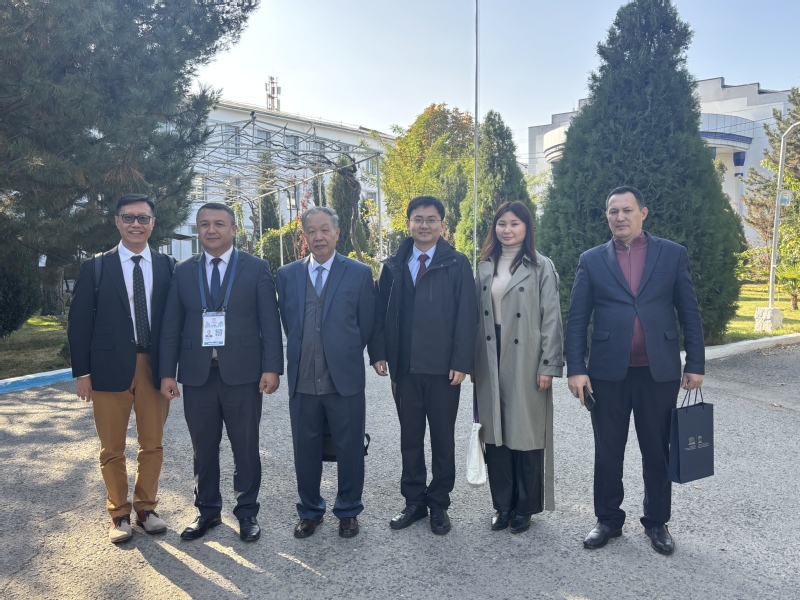
At the Samarkand Education Skills Center, Director Sobirov Anvar Kuvandikovich and Narkulov Ulugbek Mamadaliyevich (Head of the Foreign Language Teaching and Research Department) introduced the basic situation of the center. The center is responsible for the in-service professional development of teachers in over 1,200 schools in the Samarkand region, covering all subjects in pre-primary education and primary and secondary education. Against the backdrop of Uzbekistan’s current education reform, the center is striving to develop international cooperative relationships to provide new perspectives and directions for Uzbekistan’s education development. It particularly hopes to carry out in-depth cooperation with TEC in teacher training and select professionals to apply for doctoral programs at TEC. Professor Hu Guoyong expressed appreciation for the work of the Samarkand Education Skills Center, invited it to participate in the Belt and Road Initiative Partner Countries Education Workshop, and put forward two suggestions for future development: First, host a Central Asian Education Symposium next year to discuss education reform under the background of digital transformation in education and STEM education development together with the five Central Asian countries, and hope the Samarkand Education Skills Center will participate; Second, the two parties can further cooperate in teacher professional development and teaching research exchanges.
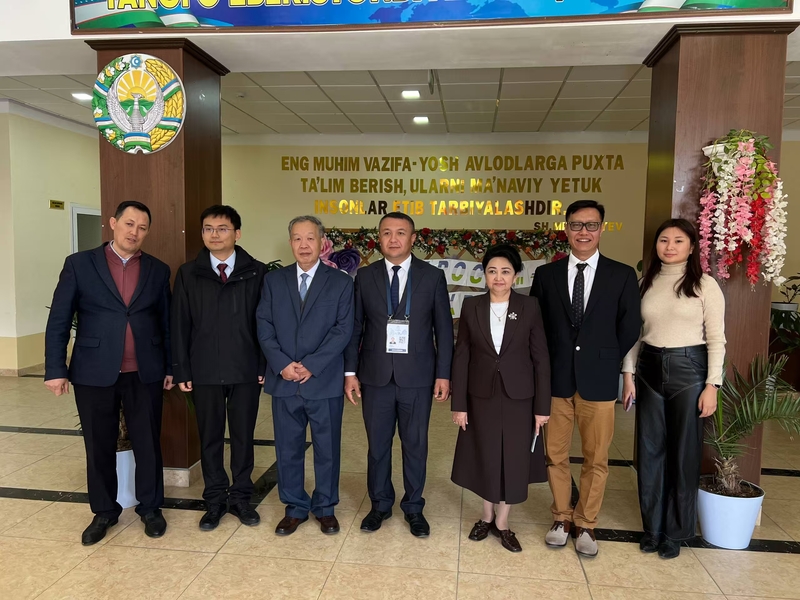
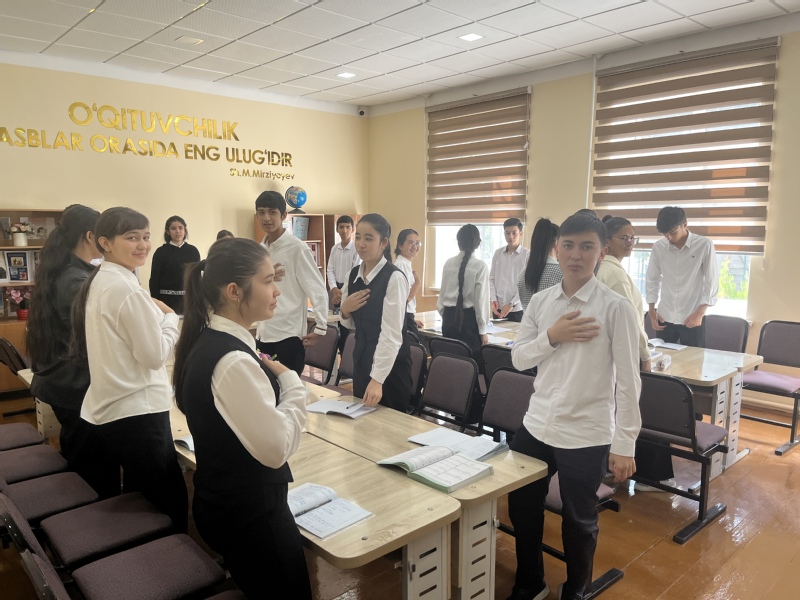
At Samarkand No. 8 School, the TEC delegation, accompanied by staff from the Samarkand Education Skills Center, held a discussion with the school principal. Located in the center of Samarkand, the school is a public school covering primary to senior high school education. It designs courses around moral cultivation, academic competence, physical development, artistic personality, and labor education to implement holistic education, and has achieved remarkable results in English teaching and mathematics teaching. The TEC delegation visited the senior high school section of the school, observed English and mathematics classroom teaching, and held discussions with teachers and students to understand the curriculum structure, textbook design, and orientation of classroom teaching methods in Uzbekistan.
Through this visit, TEC has strengthened its ties with other UNESCO Category Ⅱ Institutes and gained an in-depth understanding of the status of primary and secondary education and teacher professional development in Uzbekistan, laying a foundation for further developing teacher education research and exchange cooperation in the Central Asian region.




